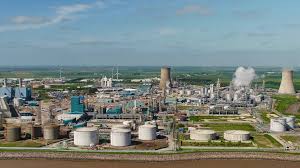The world’s biggest crude exporter, Saudi Arabia has concluded plan to build a $5 billion hydrogen plant powered entirely by sun and wind. The project which will be among the world’s biggest green hydrogen project when it opens in planned megacity of Neom in 2025 is conceived in order to have less-polluting alternatives to hydrocarbons.
The task of turning a patch of desert the size of Belgium into a metropolis powered by renewable energy is being handled to Peter Terium, the former chief executive officer of RWE AG, Germany’s biggest utility, and clean-energy spinoff Innogy SE.
READ ALSO: Three Million Obsolete Electricity Meters Due for Replacement – NERC
The huge obstacles remain to the gas becoming a major part of the energy transition, and skeptics point to Saudi Arabia’s weak track record so far capitalising on what should be a competitive edge in the renewables business, especially solar, where there are many plans but few operational projects.
“There’s nothing I’ve ever seen or heard of this dimension or challenge. I’ve been spending the last two years wrapping my mind around ‘from scratch,’ and now we’re very much in execution mode,” Terium told Bloomberg.
With the project, Saudi Arabia is setting its sights on becoming the world’s largest supplier of hydrogen — a market that is estimated to be worth as much as $700 billion by 2050.
“You’re seeing a more diversified portfolio of energy exports that is more resilient,” said Shihab Elborai, a Dubai-based partner at consultant”, saying that “It’s diversified against any uncertainties in the rate and timing of the energy transition.”
Blueprints are being drawn and strategies are being announced, but it’s still early days for the industry as hydrogen is expensive to make without expelling greenhouse gases, difficult to store and highly combustible.
Green hydrogen is produced by using renewable energy rather than fossil fuels, while the current cost of producing a Kilogramme is a little under $5, according to the International Renewable Energy Agency. Saudi Arabia possesses a competitive advantage in its perpetual sunshine and wind, and vast tracts of unused land.
It’s more expensive to produce renewable energy in Europe, and the continent’s anticipated demand while implementing a Green Deal should exceed its own supply, Terium said.

